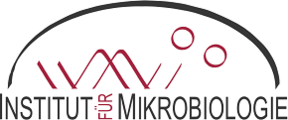
Marine phytoplankton account for about 50% of total CO2 fixation on the planet. Unicellular photosynthetic eukaryotes live in symbiosis with a complex microbiota. Bacteria act as probiotics, providing essential vitamins, growth hormones, and micronutrients to their algal host, but can also eventually kill it (Jekyll-and-Hyde interaction). We seek to unravel the mechanism of both probiotic and pathogenic interactions using the dinoflagellate Prorocentrum minimum and the Roseobacter species Dinoroseobacter shibae as a laboratory model system.
Bacterioplankton in the ocean represent a huge population of tiny bioreactors driving the biogechemical cycles of carbon, sulfur, nitrogen and phosphorus. We seek to understand the parameters and mechanisms shaping bacterioplankton composition and activity based on samples that were collected with Research Vessel Polarstern (Cruises ANT25-28 Atlantic Ocean) and Research Vessel Sonne (Cruise SO-248 Pacific Ocean). Such understanding could help to model and predict potential effects of global change on the marine ecosystem and the biosphere.